“I like to act in films, I like to shoot ’em, I like to direct ’em, I like to be around ’em. I like the feel of it and it’s something I respect. It doesn’t make any difference whether it’s a crappy film or a good film. Anyone who can make a film, I already love. But I feel sorry if they don’t put any thought in it because then they missed the boat.”
Most people know John Cassavetes from such classic films as The Dirty Dozen and Rosemary’s Baby, but he was unique in that he was also one of the first auteurs of the American independent film scene. Beginning his career in the late 50s, Cassavetes used the funds he made from acting in Hollywood productions to finance the majority of his own personal projects. In an interview, Cassavetes once stated that as a moviegoer and artist, he was not really interested in most Hollywood movies, and that his main focus was human beings, in all their beauty and ugliness and more importantly how they love one another. His own films were about every day people and their relationships, not fantasies. Making films outside of the Hollywood studio system allowed him and his actors to be co-authors of the work, creating a more communal, personal atmosphere. It is often thought that Cassavetes films were largely improvisational which is mainly due to their seemingly freeform acting but that is incorrect. Every film except for Shadows was scripted. Ultimately, Cassavetes did things his own way and these works are still electrifying and thrilling to watch especially when we are constantly bombarded with fakeness from every direction by the entertainment industry. Watching a Cassavetes film is always like a breath of fresh air in a smog filled world. For those not familiar with the films of John Cassavetes I highly recommend taking a look at them. They’re some of the most exciting, funny, thought provoking, realistic works of cinema I’ve ever seen.
Shadows (1959) From the opening moments of John Cassavetes directorial debut the atmosphere is abuzz as jazz musician Benny (Ben Carruthers) makes his way into a NYC Beat club. The place is filled with people dancing around and bopping to the lively beat but Benny the rebel of the picture takes a spot in the back and broods. He next meets up with some of his pals as they excitedly and roughly greet each other (a Cassavetes trademark) and then go into a diner to chat it up with some chickies. We soon learn that Benny (who appears to be white) is actually the lighter skinned younger brother of a black singer named Hugh (Hugh Hurd). We’re also introduced to Hugh’s buddy Rupert (Rupert Crosse) his manager/agent who is a comical character with his fast paced speech, high squeaky voice and likable personality. Benny and Hugh’s younger sister Leila (Lelia Goldoni) alsio has a light complexion and is a very attractive woman. While Benny and Hugh have their own troubles with their jobs and money, the focus of the film shifts over to Lelia after she meets Tony (Anthony Ray) a white man who she hits it off with one night at a party. The two begin spending time together and soon fall in love. When Tony finds out Lelia is in fact black he begins feeling uncomfortable and this causing tension and troubles within her family. The movie examines the effects of the interracial relationship has (a taboo subject at the time) but also between the dark/light skinned siblings.
Shadows was shot on the streets of New York City where the diners, stores and grindhouse theaters on 42nd street can be seen in many of the shots. The score for the film was provided by jazz saxophonist Shafi Hadi who was hired by Cassavetes after his first choice famed jazz musician Charles Mingus failed to meet the deadlines for the movie. The sounds, like the subject matter and style of filmmaking compliment each other perfectly, the freeform jazzy riffs mixed with the improvised scenes created by the actors.
Shadows is now considered a monumental work of early American independent cinema. While the Nouvelle Vague was booming in France, filmmakers like Cassavetes were creating their own groundbreaking counter-culture films that would influence the way movies were made and seen by audiences from then on. Shadows was also one of the early examples of the medium of cinema verite which combined documentary style filmmaking with improvised scenes. The subject matter which dealt with interracial relationships was also a very controversial topic for its time. Cassavetes shot the movie twice: once in 1957, and again in 1959, the second version was his favorite.
Faces (1968) Richard “Dickie” Forst (John Marley) is a businessman who is good at his job but at home his marriage is on the rocks leaving him scrambling for a new relationship and he finds it with Jeannie (Gena Rowlands) a young vivacious blonde who livens up Dickie’s stale life. All the characters in this movie are so intense and at the same time very funny. Each of the people we spend time with seem to be deeply unsatisfied with their lives and are searching for happiness. The title itself is a metaphor for the faces people must wear and their true faces, which they hide because of the pressures of society and how they are expected to behave. One thing that is so captivating about Faces is how the moments of personal despair and anger are juxtaposed with downright hilarity. It’s an emotional rollercoaster that will have you laughing hard one moment and feeling such pity the next. In one of my favorite sequences Dickie Forst and his old pal run around like little kids on a playground at Jeannie’s home. Look for an especially memorable performance by Cassavetes regular Seymour Cassel as a young playboy/hippie who tries to impart his theory of how to have fun to a group of middle aged women that have lost their excitement for life. What’s so special about Faces is the fact this little 16mm movie shot on a miniscule budget has such an emotional impact. It’s a true late 60s gem.
A Woman Under The Influence (1974) John Cassavetes moves into the realm of every day domestic life and tells the story of Mabel (Gena Rowlands) a stay at home mother and her husband Nick (Peter Falk) a construction worker. We learn that Mabel while goodhearted is regarded as a bit strange. It soon becomes clear that she is in fact mentally unsound as we witness her going to a bar and picking up a strange man out of the blue. When Nick finally arrives home he oddly brings all his co-workers with him. Mabel’s introduction to the men is awkward yet really funny as she asks them if they want some spaghetti for lunch. As the men all sit around the table and stuff their faces, Mabel acts like a loon. What Nick first sees as Mabel being eccentric and silly soon changes to a deep concern as she sinks deeper into declining mental health. Nick finally decides to have her committed to an institution so she can get help leaving him alone to take care of their rambunctious kids. Peter Falk is excellent as Nick and his scenes after Mabel leaves are completely hilarious filled with moments of utter frustration and anger as he tries to take care of their kids. Still, the movie really belongs to Gena Rowlands and her incredibly daring portrayal of Mabel, a woman who loves her family but who is insane.
Cassavetes was unable to get studio financing for this film so he ended up mortgaging his home and borrowed money to get it made. When it was completed he couldn’t get a distributor so he personally contacted theaters. It was also shown on college campuses where Cassavetes and Falk would often visit and talk with the students about the film in detail.
Like with many great films that are not box office hits, the movie went on to earn two Academy Award nominations: one for Gena Rowlands (Best Actress) and the other for John Cassavetes (Best Director). So to recap: this little film that was not studio backed or distributed was up for two Oscars. That should make it clear how much box office really means as far as quality cinema goes.
The Killing of a Chinese Bookie (1976): Ben Gazzara (Road House) plays nightclub owner Cosmo Vitelli who has an outstanding gambling debt which he owes to a mob supported loanshark. When Vitelli makes it known that he can’t fulfill his entire payment, the mob uses it as a ploy to force him to be a hitman for one night. Vitelli relents but when his life is threatened he goes ahead with the assassination of a man he thinks is a small time criminal, but who is actually the head of the Chinese mafia on the West Coast. Vitelli performs the hit, killing the man along with several of his bodyguards but is wounded as he tries to escape. Gazzara gives one of his best performances as Vitelli, a grizzled war veteran who has built his own little oasis of happiness in the Crazy Horse West, the nightclub he owns. His one weakness seems to be gambling and it ultimately ruins everything he’s built up over the years. The supporting cast features Seymour Cassel and Timothy Carey who both appeared together in Minnie and Moskowitz. Here they play two mob enforcers that put the evil eye on Vitelli.
The Killing of a Chinese Bookie was heavily influenced by Martin Scorsese’s film Mean Streets, which was itself inspired by a suggestion John Cassavetes made after seeing Scorsese’s impersonal B-movie Boxcar Bertha which he felt was not the kind of film Scorsese should be doing to break out of the box. Scorsese in turn has cited Cassavetes’ first film Shadows as one of the main influences on Mean Streets and if you watch both films back to back that becomes very clear. Both have a highly kinetic urban atmosphere and both deal with troubled family relationships. One specific connection between the two films is the gambling debt storyline. Like Gazzara’s Cosmo Vitelli, Mean Streets character Johnny Boy (Robert DeNiro) owes money to a local wiseguy.
Opening Night (1977) Myrtle Gordon (Gena Rowlands) is a middle aged Broadway actress that is working on a new play called “Second Woman” about a character who cannot admit she is getting older. After witnessing the tragic death of one of her fans who she met backstage, Myrtle begins to suffer an emotional breakdown and begins drinking and seeing things. Her life becomes a strange mirror image of the ones troubling the character she plays. She even has hallucinations of her dead fan trying to attack her in a Black Swan like fashion. Things are made more troubling as her pushy manager (Ben Gazzara) continuously puts her down for losing her focus and happy attitude. As in Minnie and Moskowitz, John Cassavetes plays an abusive character who happens to be Myrtle’s co-star in the play. Their scenes together are some of the most intense and comical in the entire film. For fans of the theater, the film also gives viewers a first hand look at what it’s like to be in a stage production, from the rehearsals to the live performances. Gena Rowlands gives another amazing performance as a troubled woman trying to cope with the work and her personal relationships.
“I’ve always been able to work with anybody that doesn’t want success. Jazz musicians don’t want success…They have these little tin weapons – they don’t shoot. They don’t go anywhere. The jazz musician doesn’t deal with the structured life – he just wants that night, like a kid.”
This article is dedicated to Peter Falk (1927-2011)
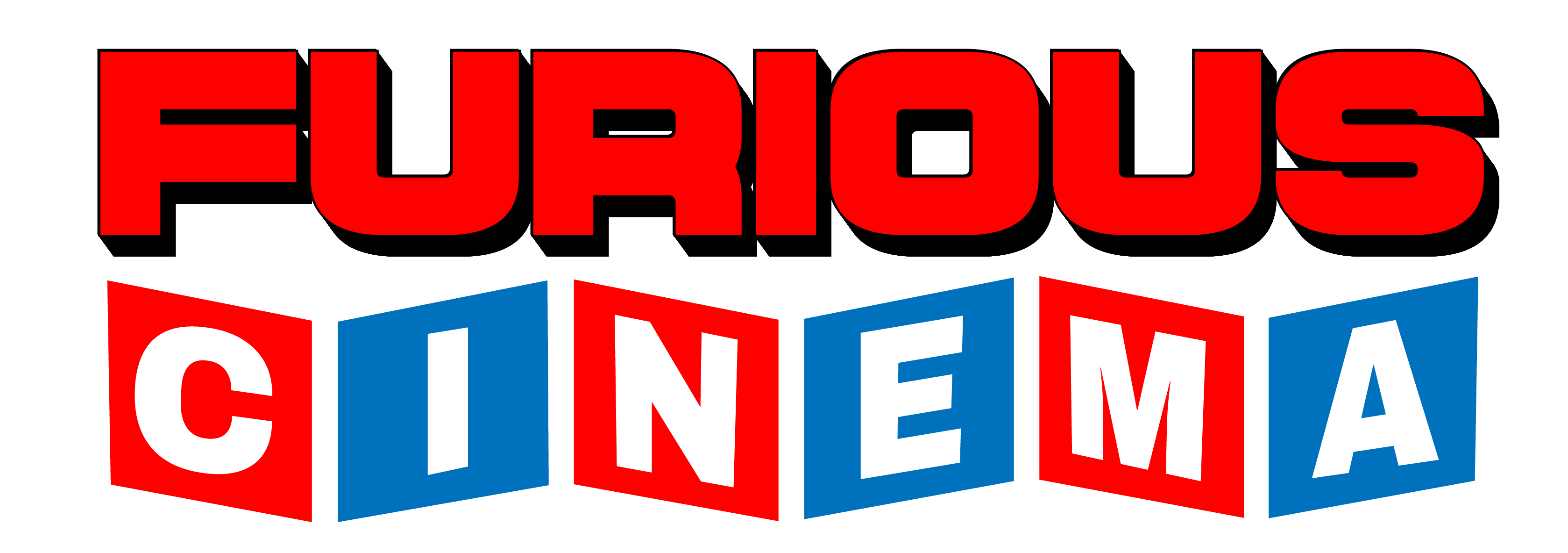
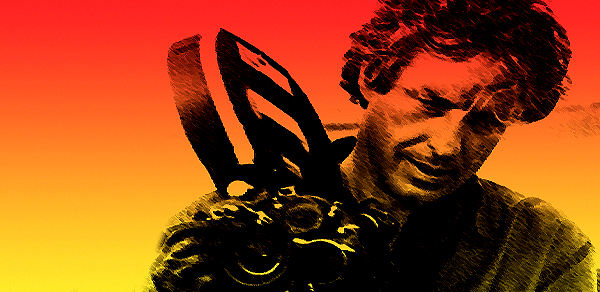

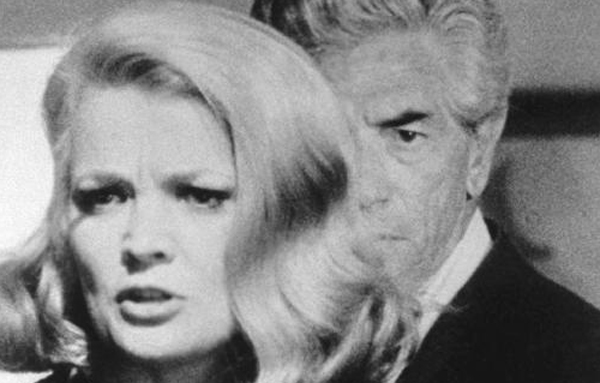

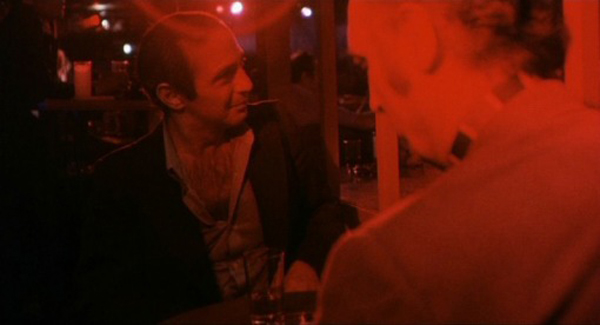
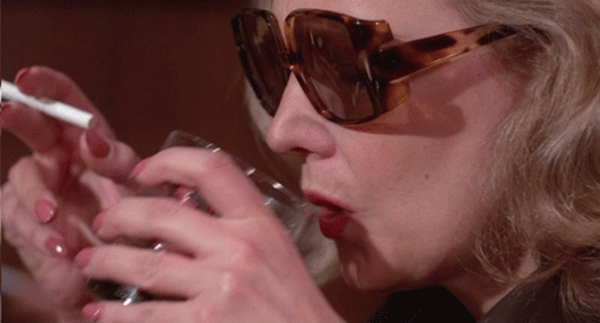
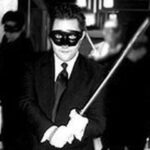
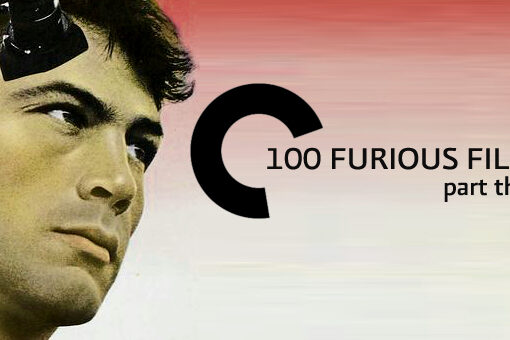
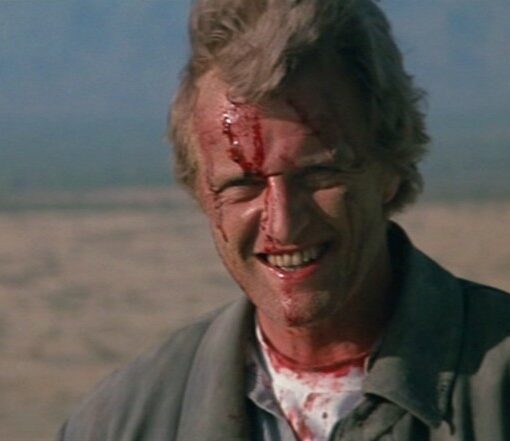
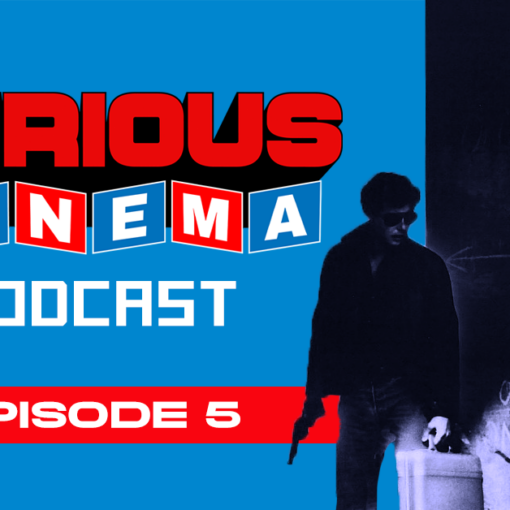
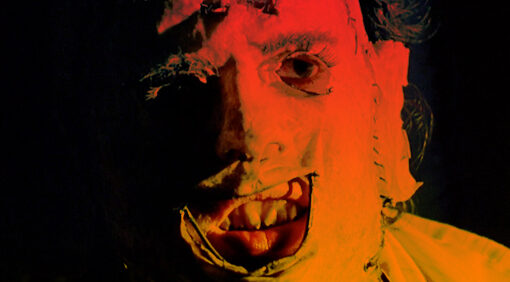
4 thoughts on “The Films of JOHN CASSAVETES”
Love, Love, Love Cassavettes. Shadows and A Woman Under the Influence are fantastic films, love them both. Everyone points to The French New Wave as the starting point to the New Hollywood, but Shadows has the same mentality.
i agree 100% and sorry to the new wave frogs but ill take cassavetes flix over theirs any day. 😉